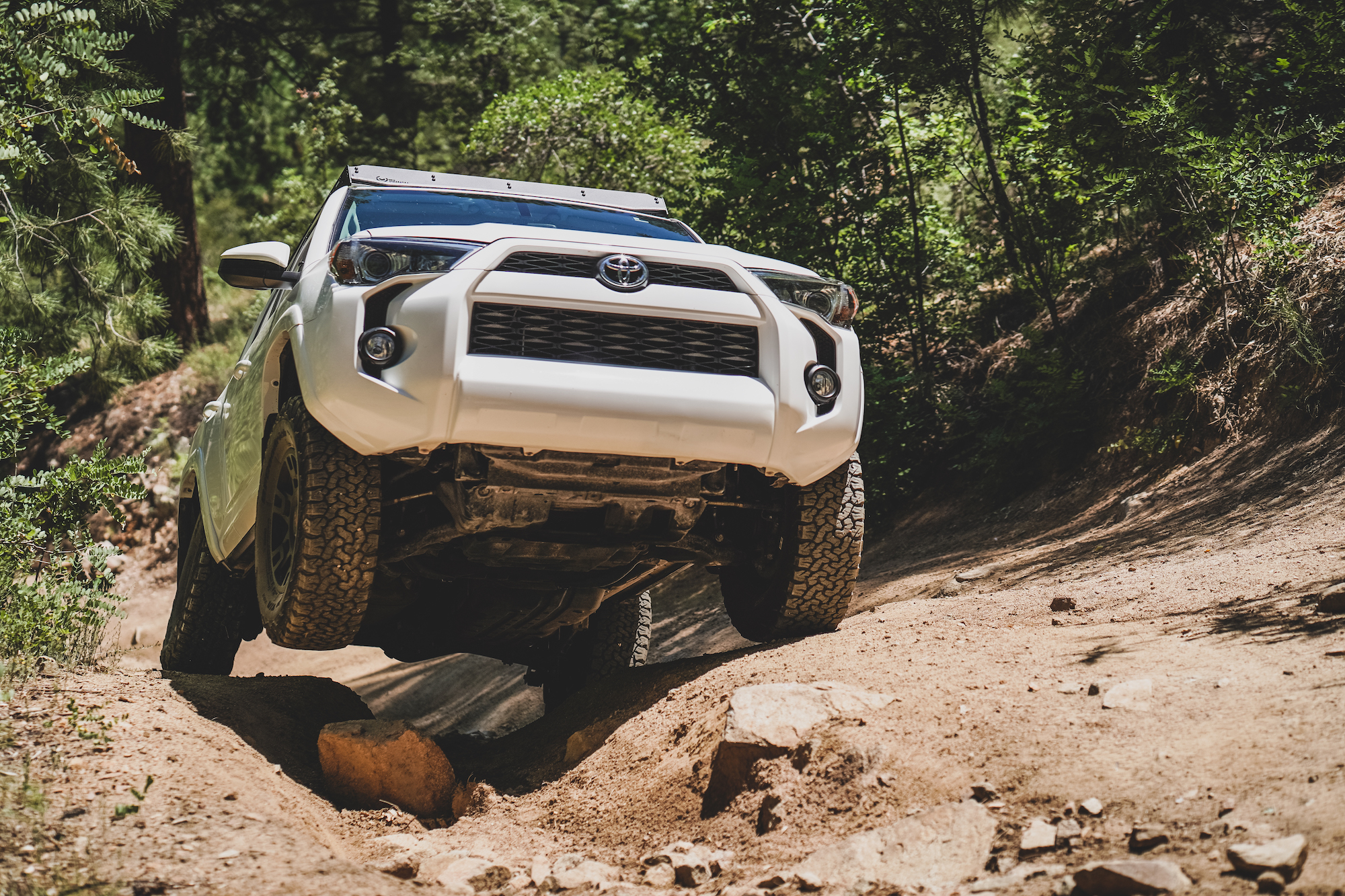There are few modifications that improve a backcountry vehicle like the installation of a proper suspension. The 4Runner, in particular, benefits from increased spring rate and firmer shock valving. One of the great strengths of the North American Spec 4Runner is that it has a legitimate payload, some models having a rating as high as 1,700 pounds. While the chassis is rated for it, the factory springs are too soft to carry a full travel load. We recently started a project on a 2019 4Runner SR5 and wanted to optimize the vehicle for a four-person family, plus camping equipment. This also gave us the opportunity to test some of the newest suspension offerings from Ironman 4×4.
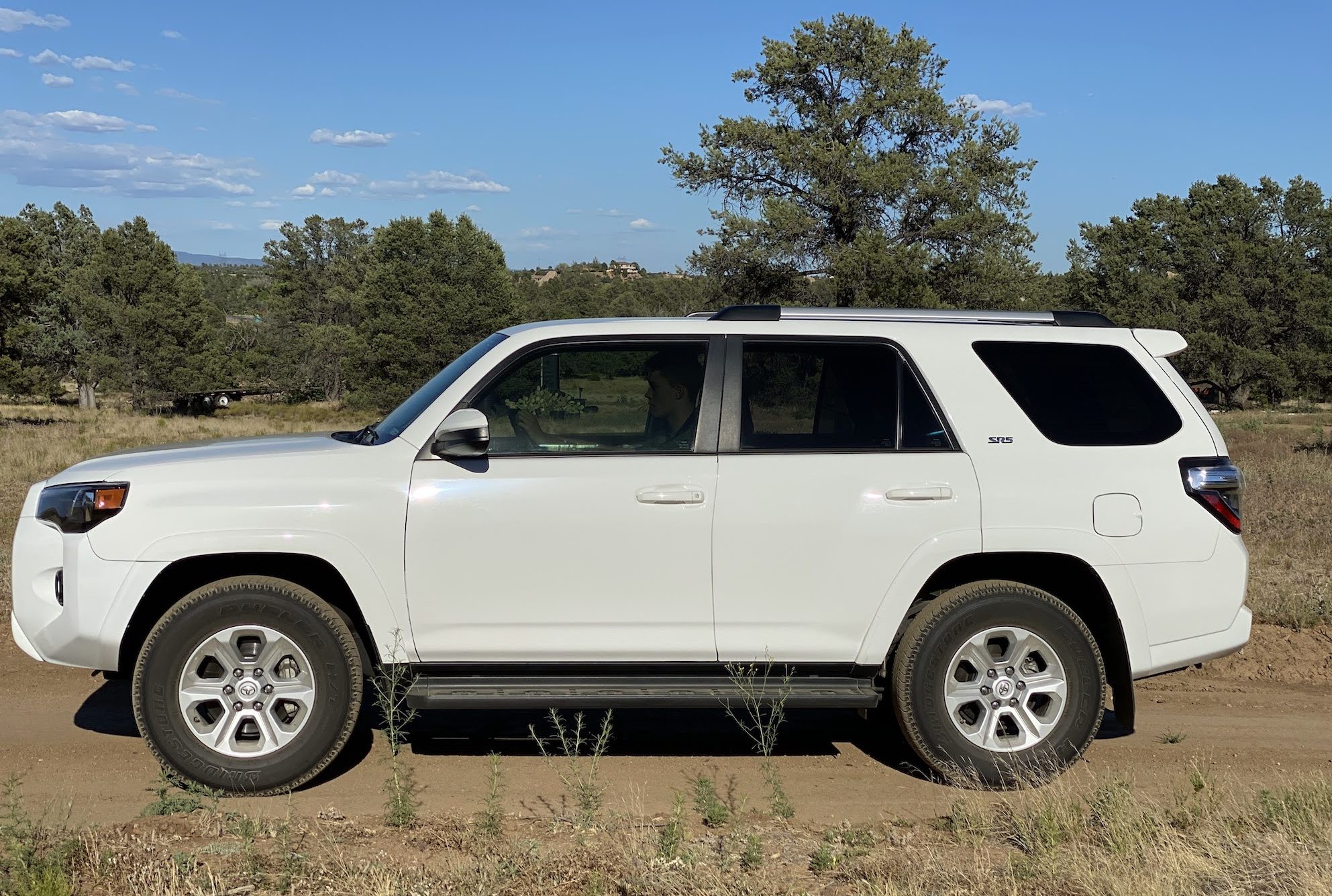
In stock form, the 4Runner has reasonable ground clearance, but there is still room for improvement and the fitment of larger diameter tires.
For the suspension project, we ordered the following part numbers:
1209K Billet sway bar bracket offset
45682FEC Foam Cell Pro rear shock absorber
45750 FE Foam Cell Pro front strut 2010+
ISST001 4Runner 2003+ strut top
PANHARD015 Rear adjustable Panhard rod
SBEXT006 Extended rear sway bar links
TOY055A Front comfort rated springs
TOY056B Prado 150 Series rear performance coil springs LWB
For the installation, we enlisted the help of Kevin Nichols of Nichols Autofab in Prescott, Arizona. He has a long history of preparing everything from autocross Subarus to full competitive off-road race vehicles. It is a blessing to have such talent in our small town, and he agreed to install this suspension system. One of our other goals for having Kevin do the install was to gain his insights on the quality of the parts and ease of installation. Nichols Autofab can be reached at nicholsautofab.com and 928-708-0300.
“As an installer, we are interested in both the quality of the components, but also the ease and precision of installation. I did not have any negative surprises installing this kit, with everything aligning properly and fitting without modification.”
-Kevin Nichols
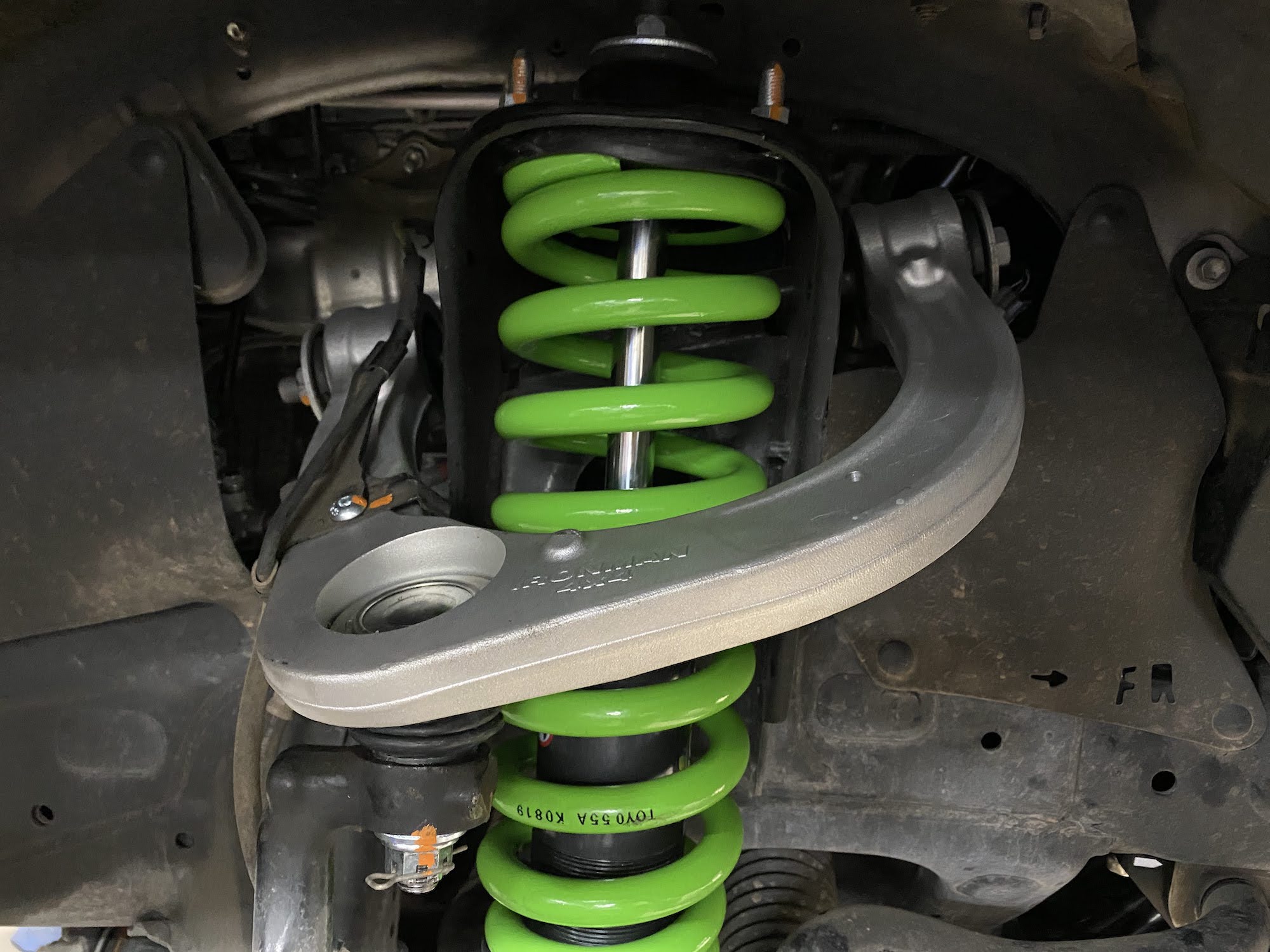
For the front suspension, the Foam Cell Pro kit includes adjustable coilovers and replacement upper control arms. There are a few features of the front kit worth noting. One of the most important is the use of OEM-style natural rubber bushings in the UCAs and on the lower coilover mount. While synthetic bushings have the appeal of longevity, they are prone to fracture, a harsher ride quality, and a significant increase in noise (we have all heard the squeaking truck going down the trail). The UCAs have up to four degrees of castor and a high-angle sealed ball joint (again, OE style for long-term serviceability and low noise).
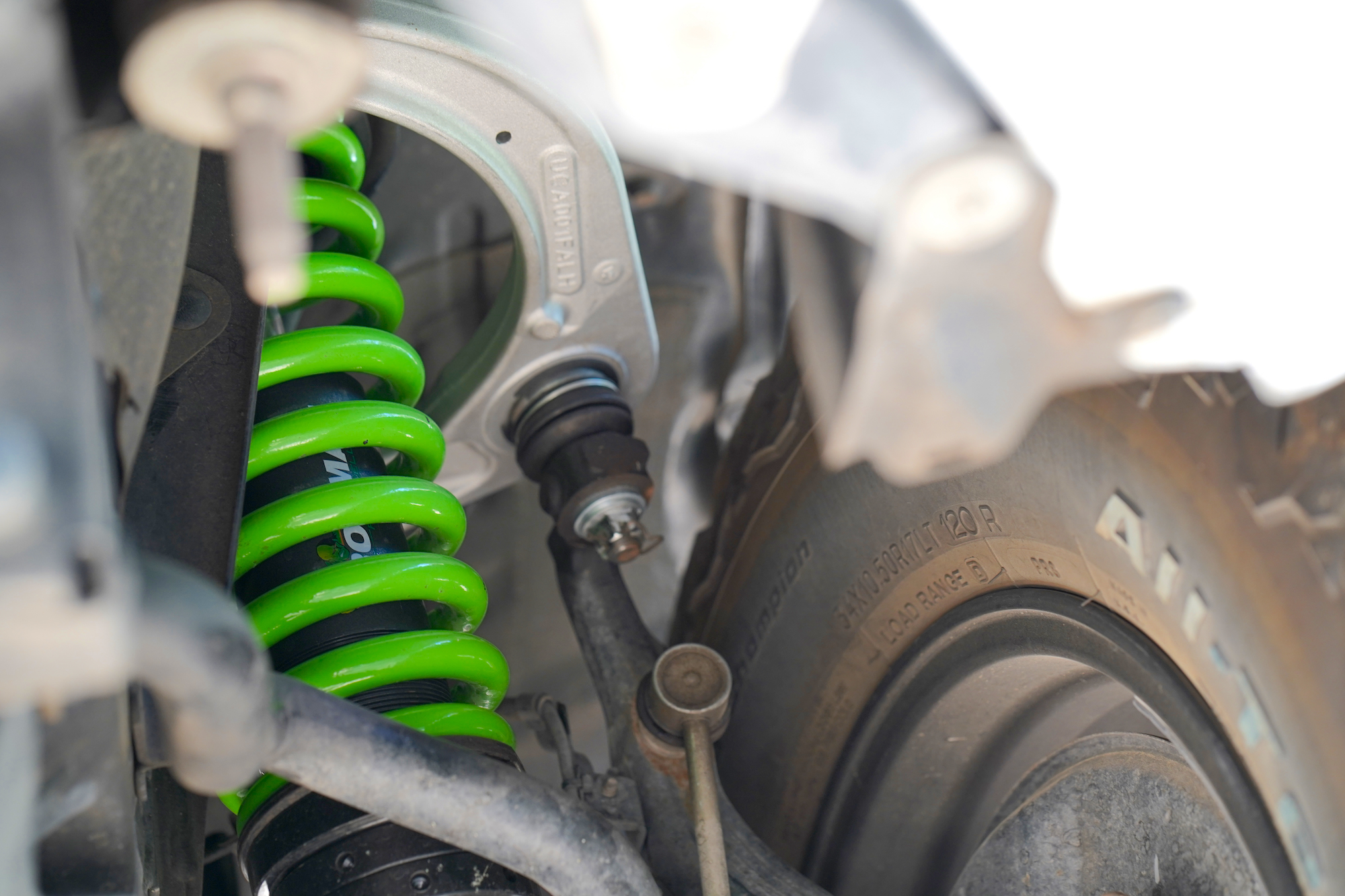
The front suspension system is comprehensive, including new upper control arms and adjustable coilovers.
The 110-pound increase in spring rate is noticeable and well suited to a vehicle we do not intend to fit with a bull bar. The increased rate decreased porpoising and improved overall moderate- to high-speed stability. The coilover valving is slightly firmer than stock on compression but has a noticeable increase in rebound control, which helps to settle the chassis through larger events and during higher speed transitions, resulting in increased driver confidence and suitability for long-distance backcountry travel.
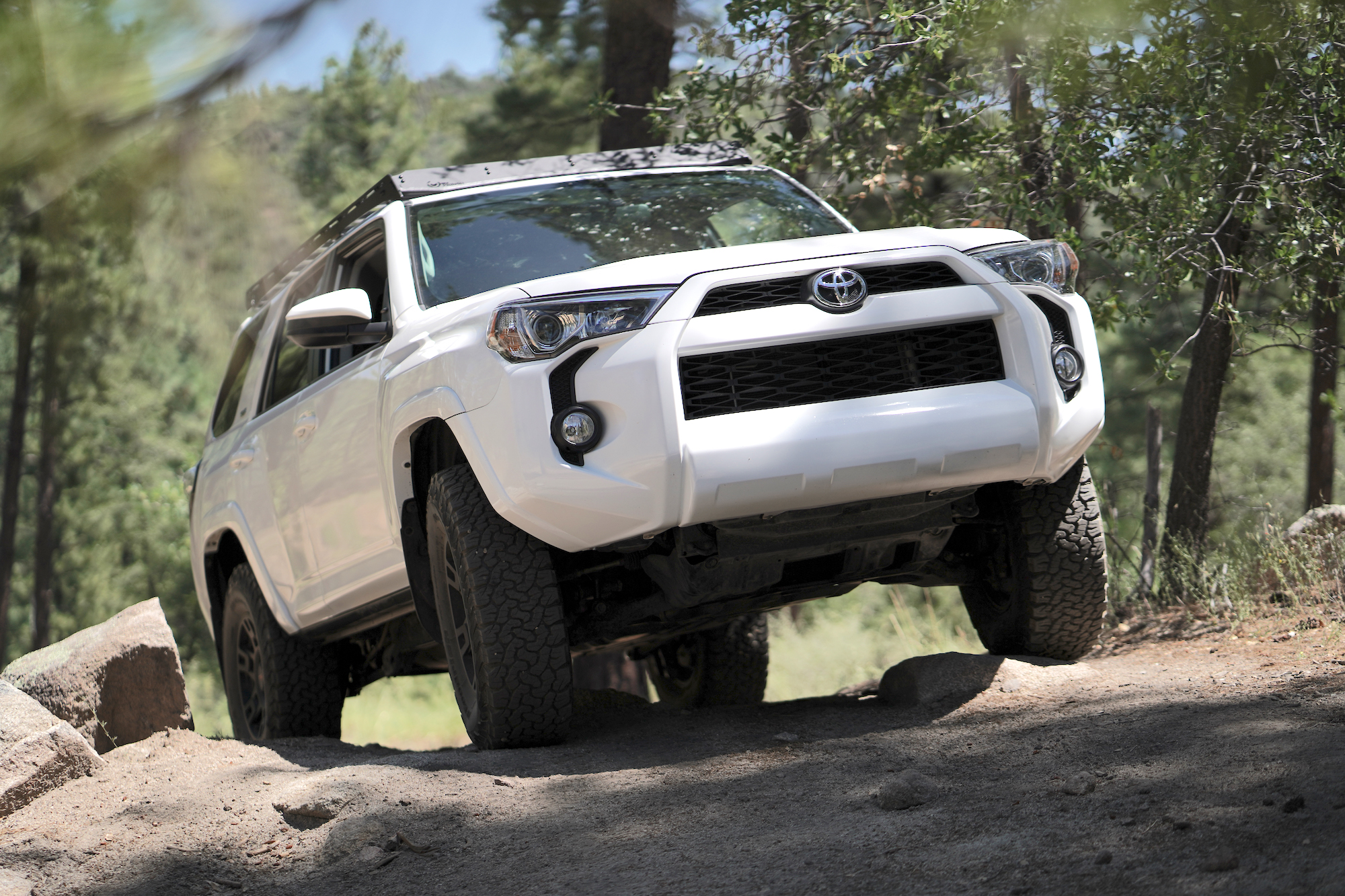
The front suspension installs easily, and helped provide additional ground clearance.
Even a small lift and larger tires makes a significant improvement in the 4Runner’s trail performance.

For the rear suspension, we did elect to go with the 2.5-inch taller and higher rate coils. Their medium performance coils provide a 20-percent increase in load capacity while still retaining a compliant ride. This coil is ideal for vehicles that may be lightly loaded for daily driver duties and then stocked with equipment and additional passengers for longer trips further afield. As an important consideration, the Stage 3 system includes an adjustable Panhard rod to center the rear axle and longer sway bar end links to put the bar back at the appropriate leverage point.
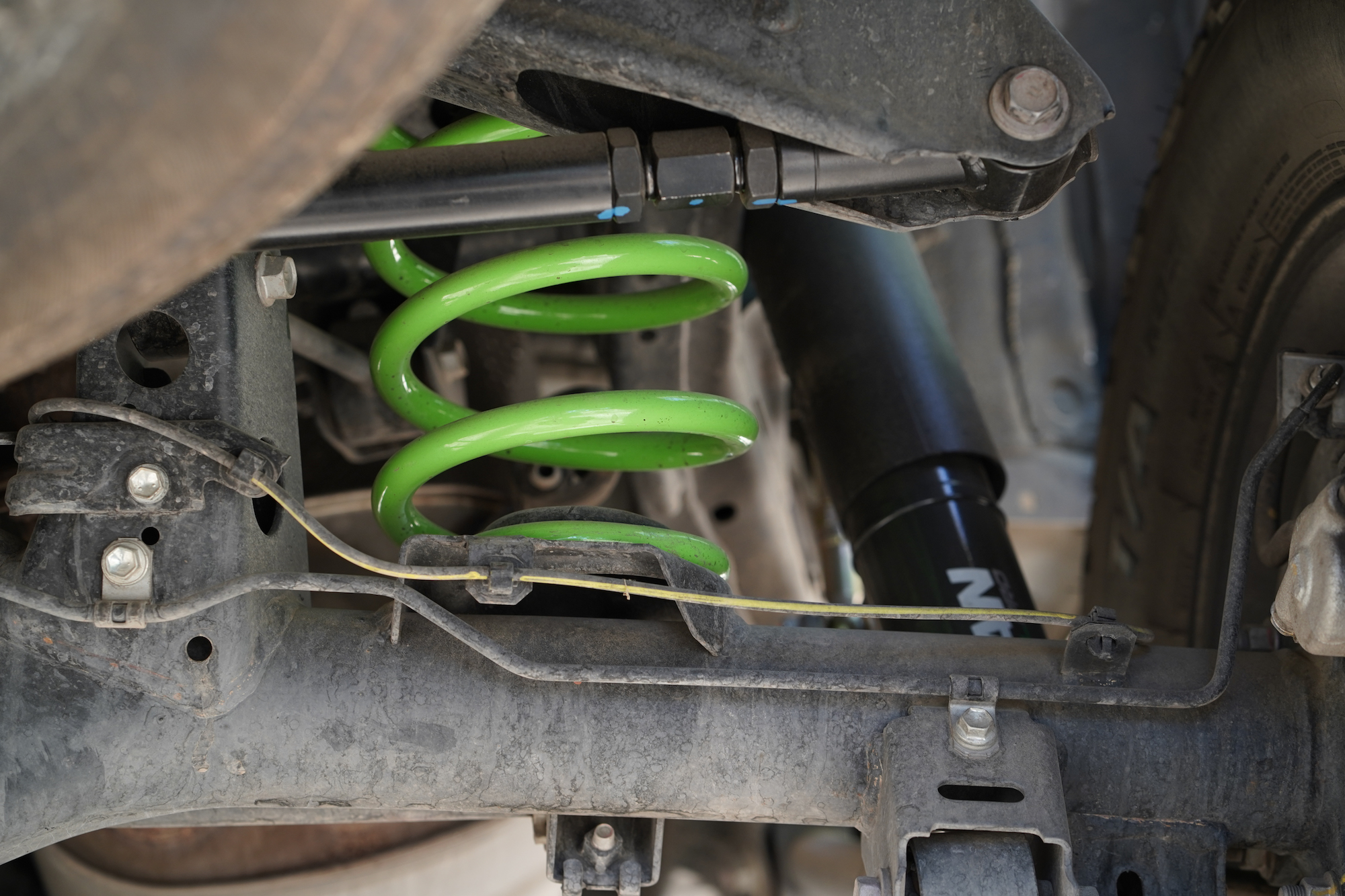
We were impressed with the quality of the Foam Cell Pro rear shocks, which include a dust and stone shield, large-diameter body (over 2.5 inches), and a thick steel wall for dent resistance. The larger diameter also increases fluid volume, reducing the chance of fading on corrugated surfaces.
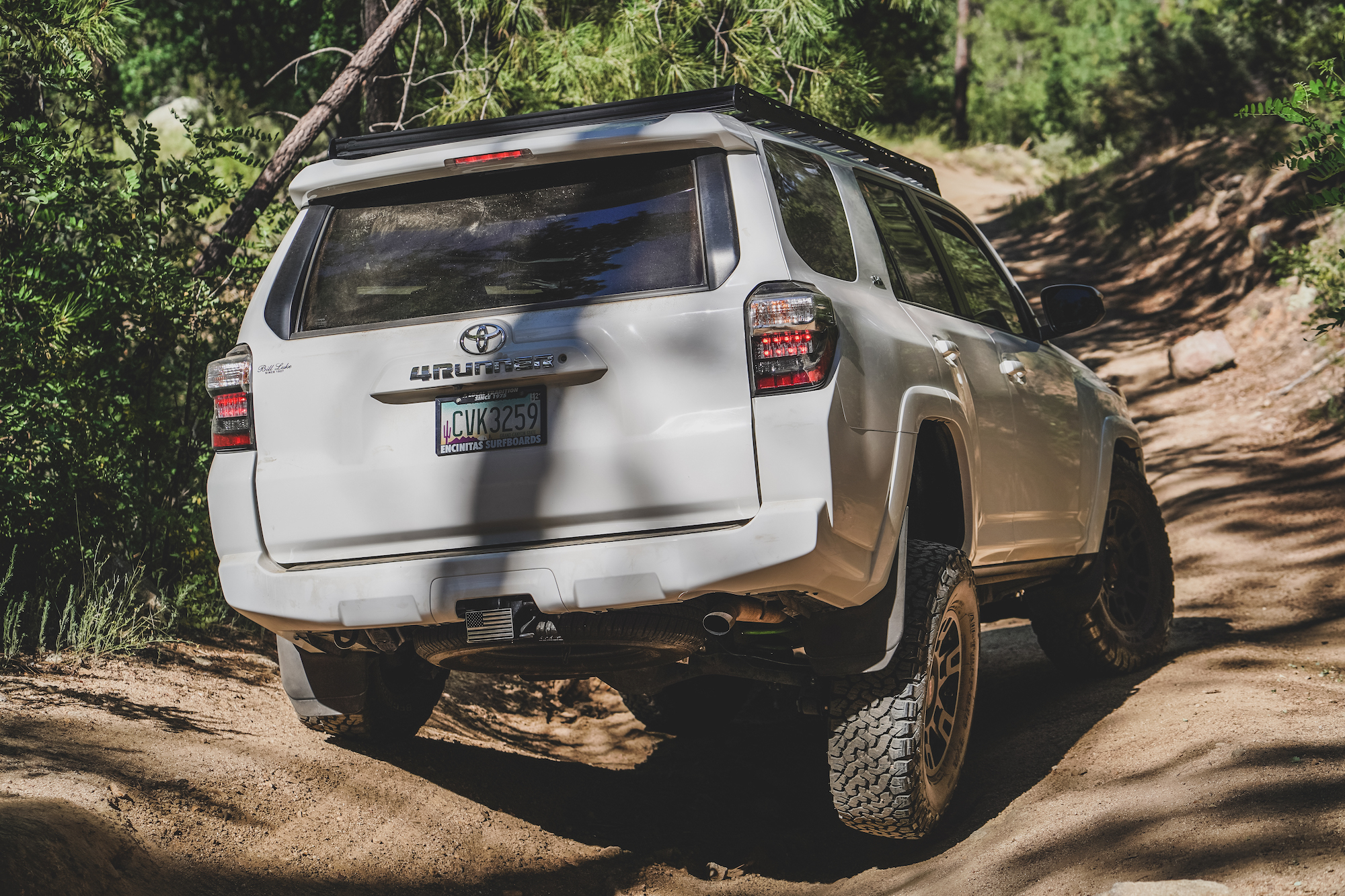
Overall, our team has been impressed with the quality of the Ironman suspension after nearly 5,000 miles of use. The dampers are well-tuned to camping loads and additional passengers, which reinforces driver confidence in the backcountry. With the lift installed, it was time to fit larger diameter tires on factory TRD matte black 17-inch wheels. For tires, we went with the classic 34×10.5 R17 BFGoodrich AT KO2. This size provides over an inch of additional ground clearance but still tuck into the factory wheel wells due to the narrower width. While Ironman has been around for a long time in Australia, it is exciting to see them come to the North American market. This first test of their suspension is off to a good start, and we will update this article with insights or any concerns once we start racking up the miles. ironman4x4america.com
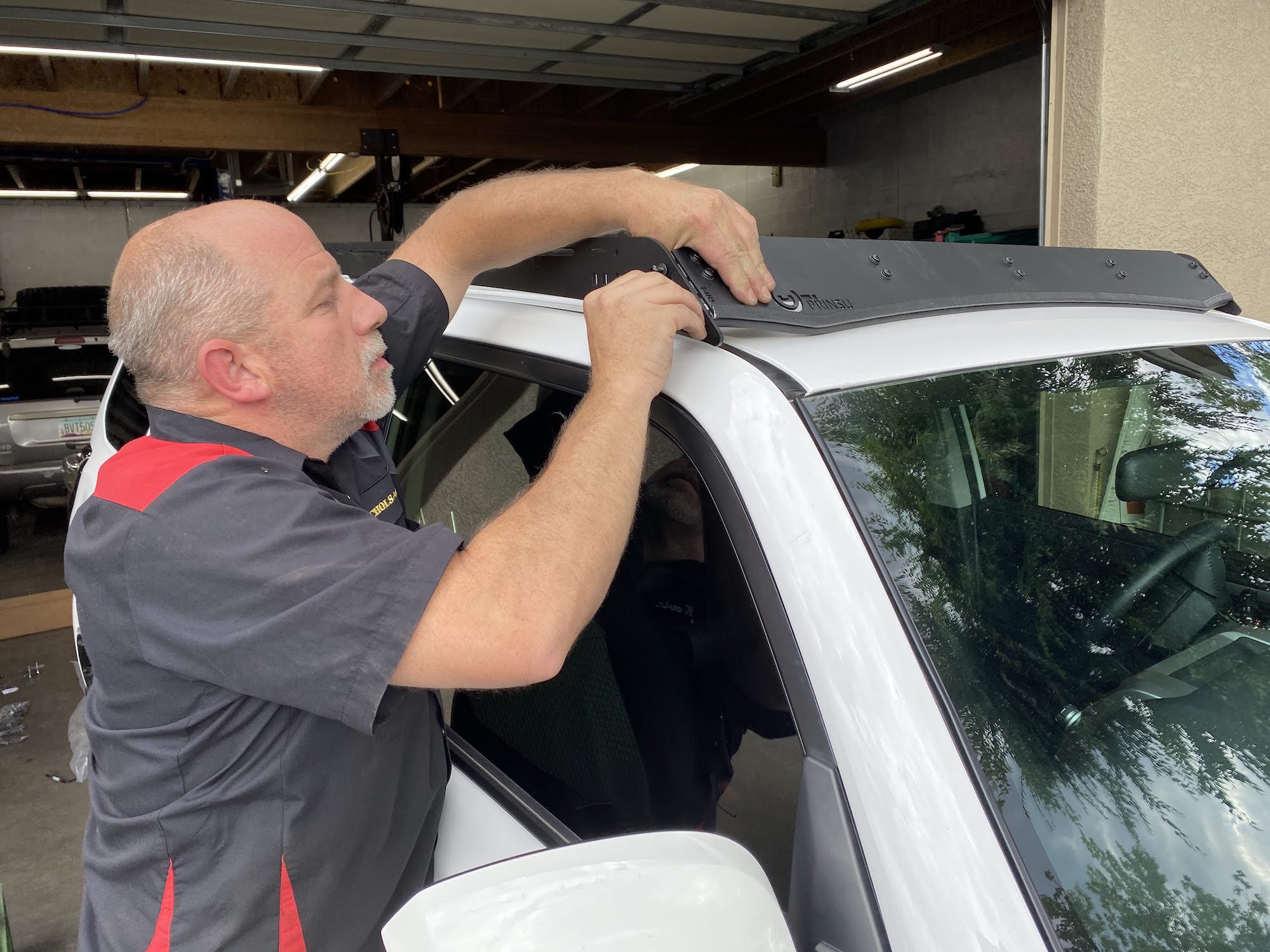
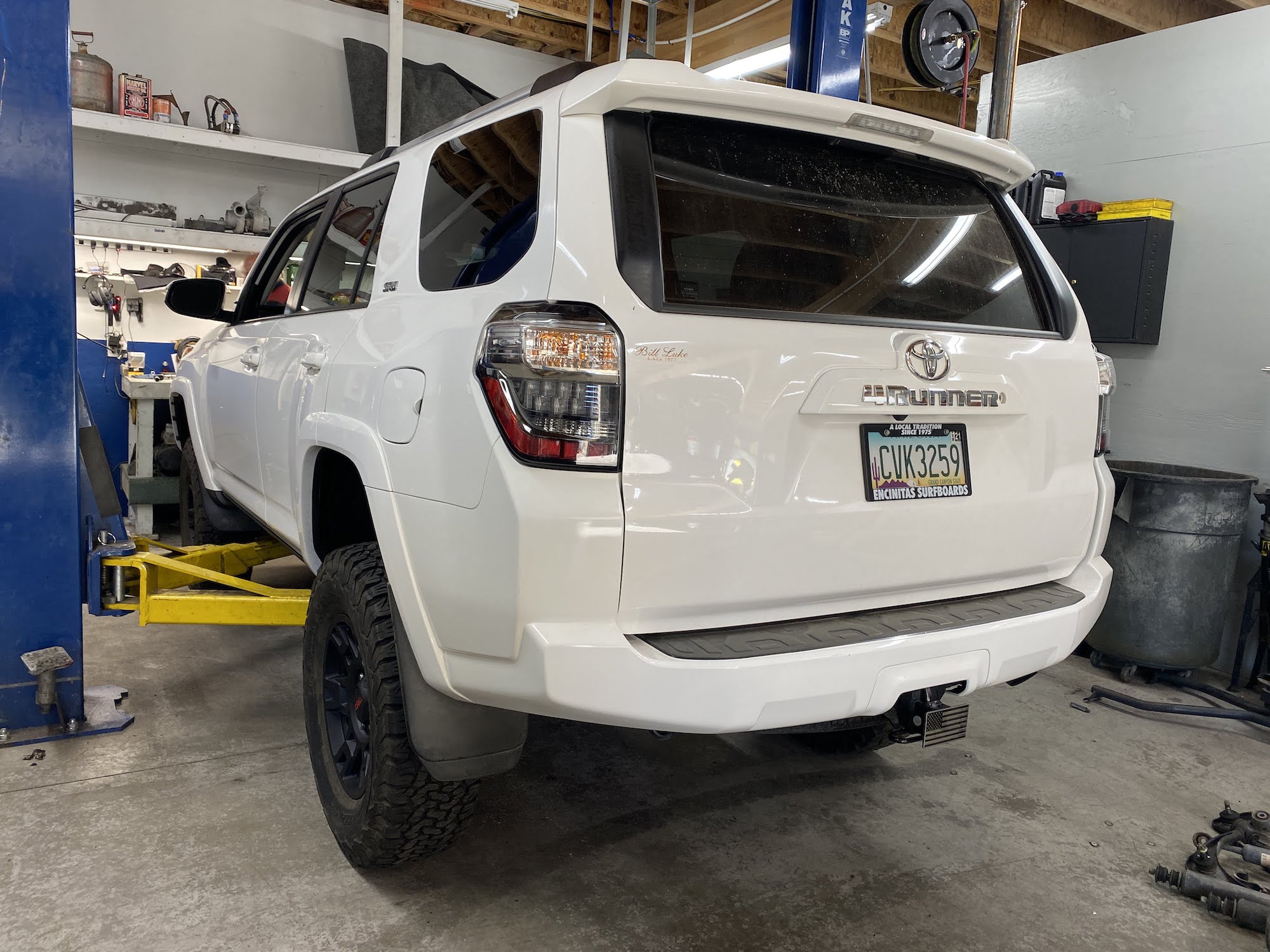
Special thanks to Nichols Autofab for the help installing this system, and for his thoughtful insights on the Ironman kit.
Our No Compromise Clause: We carefully screen all contributors to make sure they are independent and impartial. We never have and never will accept advertorial, and we do not allow advertising to influence our product or destination reviews.


